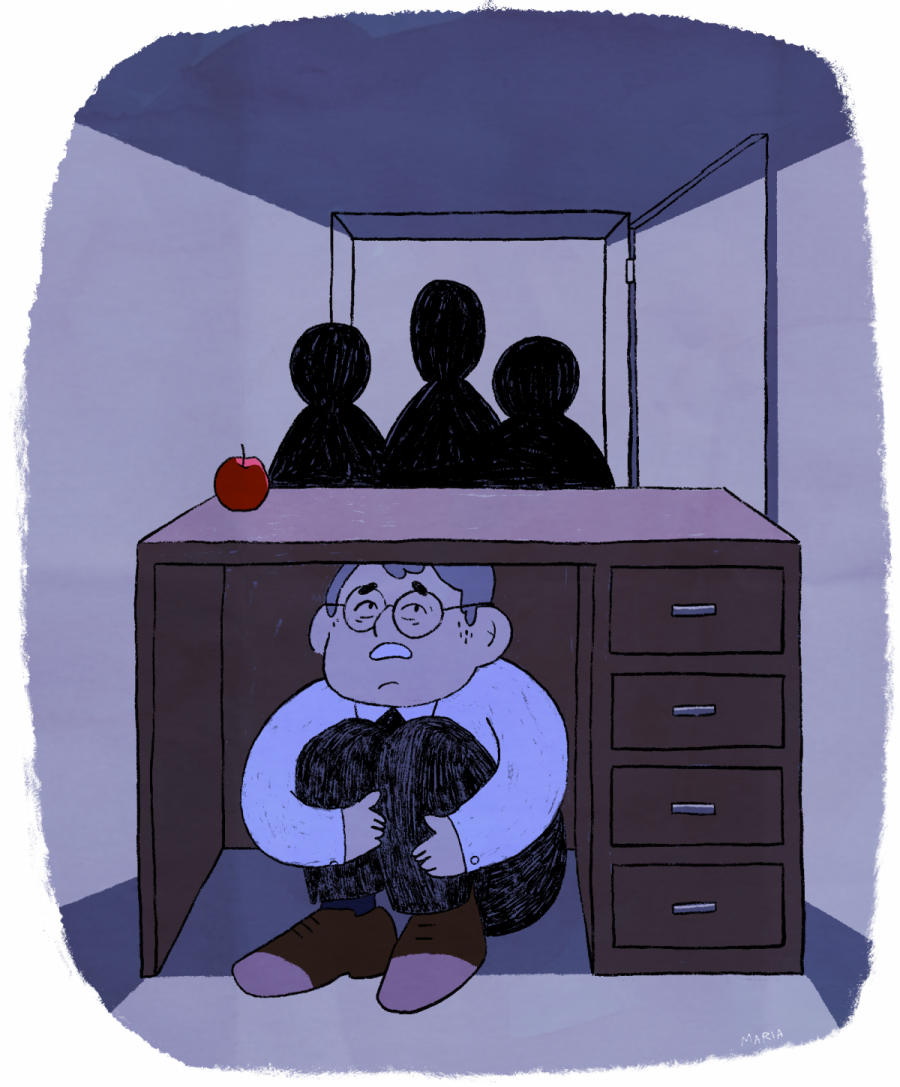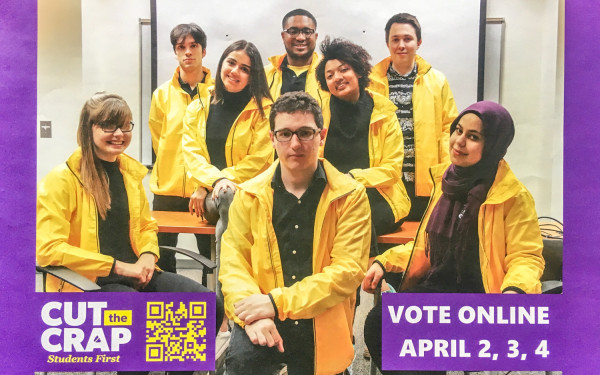Students face obstacles when complaining about problematic teachers
‘I didn’t want to complain until I sort of felt attacked’
In a two-year-old post from Reddit’s r/Concordia, a frustrated user asks where they could go to complain about one of their teachers.
According to the student, the professor would replace words in their essays with synonyms they preferred, lowering the paper’s grade when they did so. There were also technical problems in class the teacher had neglected to fix, making it impossible to view the important course material. Did anyone know, they asked, what could be done about this?
The post’s replies, most from now-defunct accounts, all say the same thing:
“You'll have to run it through your specific department. However, I hate to say it but your concerns will probably go straight into a drawer.”
“Don't bother they won't do anything.”
“Concordia doesn't care, man. I've tried to go down that route in the past and [the] only thing that happened was me learning that Concordia just doesn't give a shit about employee quality.”
Two opinions reign: Concordia students aren’t told how to file complaints against problematic faculty members, and they don’t think doing so will change anything.
There are several ways Concordia students can go about filing a complaint. If they want to complain informally, they can speak to a teacher they trust or the head of the department, who may take care of the situation on their behalf. If the concern is more serious, the Office of Rights and Responsibilities and the CSU Advocacy Centre both provide students with advice, resources, and assistance when filing charges against a teacher. But the reality of that process is a lot more complicated than it sounds.
The Link spoke to a professor, who has helped settle disputes between students and other teachers, and who asked to be anonymous. According to them, the process can be “extremely stressful” for students who decide to file a complaint.
“It usually only happens if there’s a situation that feels like it’s chronic,” they said, “if it’s not one remark or one test that feels like it was unfair. When those things keep happening, I think students feel like they need to talk to somebody, not just for themselves but for future students as well.”
Their department recommends that students first attempt to resolve issues informally. If a professor is involved, a conversation might be set up between them and the student who lodged the complaint. But many students do not feel comfortable publicly complaining about a teacher whose class they attend.
“If I was in a situation where I felt uncomfortable about how things were transpiring,” the professor admitted, “I would probably not feel like I could talk to the professor about it.”
The Link also reached out to a student who complained about their teacher earlier in the semester. They too asked for anonymity.
“From the beginning, I had a lot of anxiety going in,” they said. The student described how they felt put down by their professor and wondered if their classmates shared their distress. “After the first day of class, I wasn’t necessarily happy that I’d taken it.”
According to them, the teacher did not respond well to student discussion, and would regularly continue lectures half an hour later than they were scheduled to end. During one lecture, in particular, the teacher’s remarks affected the student’s mental health greatly, but they still felt hesitant to complain.
“After that class, I had half a mental breakdown,” they said. “I didn’t want to complain until I sort of felt attacked, and even then, I really wanted to remain anonymous because I didn’t want to put my grades in jeopardy.”
“Students are thinking, do I go to the chair? The Office of Rights? Some students might say ‘the Office of Rights is great’ and others have said ‘I don’t trust them,’ so it’s really complicated, and in a way, I don’t know how it could be otherwise.” — Anonymous Professor
“Your academic future is at stake,” the professor told The Link. “You know that the instructor has power over you and over your grade. Nobody wants to get into that situation and then have to take an academic reassessment. Everybody hopes to be able to resolve things informally without having to attach their name to a situation and go through the stress.”
On the New Concordians 2020-2021 Facebook page, over 100 first-year students were polled about whether they felt comfortable filing a formal complaint against a teacher. 21 per cent of students replied that they would feel comfortable complaining, but only if they could do so anonymously. Over 50 per cent said they would file a complaint if they knew how but didn’t.
“It’s still kind of a labyrinth,” the faculty member said. “Students are thinking, do I go to the chair? The Office of Rights? Some students might say ‘the Office of Rights is great’ and others have said ‘I don’t trust them,’ so it’s really complicated, and in a way, I don’t know how it could be otherwise.”
After reaching out to their department, the student learned that several other complaints had already been filed against their instructor and that a process was underway to replace them. However, the department did not formally notify their class of this until two weeks later. During that time, no lectures were held, and the class’s Zoom links remained inactive
“That was poorly managed,” the student said. “I’m not blaming that on my teacher—I just think there was a lack of communication.”
The professor also outlined how the Concordia University Part-Time Faculty Association (CUPFA) could pose problems for students who want to see action taken against a faculty member.
“What I’ve been told is that complaints against part-time faculty go into their file,” they said. “If there are a certain number of them in one year, there’s a procedure that happens, punitive action is taken, and the professor may be removed from the classroom.”
This is in line with article 12.03 of CUPFA’s collective agreement: “Part-time faculty members who have acquired at least twenty-four (24) seniority credits shall not be dismissed without having received two (2) written warnings. A reasonable time must elapse between each of the warnings and between the last warning and dismissal.”
However, article 12.05 of the agreement states that “After a period of eighteen (18) months has elapsed, any record of disciplinary action is considered null and void, and is removed from the part-time faculty member’s academic and professional dossier by the University provided there has not been any disciplinary action in the interim and provided that the part-time faculty member has held at least one (1) part-time contract during that period.”
The statement nearly echoes that of the Reddit commenter who worried that their “concerns [would] probably go straight into a drawer.”
“The institution is this big organism that has many parts and they’re not internally consistent,” the professor said. “Everyone wants the students to feel like they’re being well-served academically, that they’re in a respectful and safe situation, but the fact that it is a bureaucracy can probably make you feel like the institution isn’t working to help the student.”
“The meetings, the forms—that’s all very alienating,” they added. “A lot of people would rather just suffer through it than venture into that.”
The Reddit thread was posted around the same time that a string of sexual assault allegations at the university had come to light. While most of these accusations were filed in 2018, and received mainstream media attention, the incidents originally took place in the 1990s.
The professor was unaware of the situation but stated that they knew students who had come forward with their own experiences of sexual harassment.
“That was really hard because I felt a responsibility toward them,” the professor said. “I felt like I should have asked more. It’s hard to even know what to say.”
This article originally appeared in The Resistance Issue, published April 13, 2021.




_900_642_90_600_375_90_s_c1.jpg)


__600_375_s_c1.png)